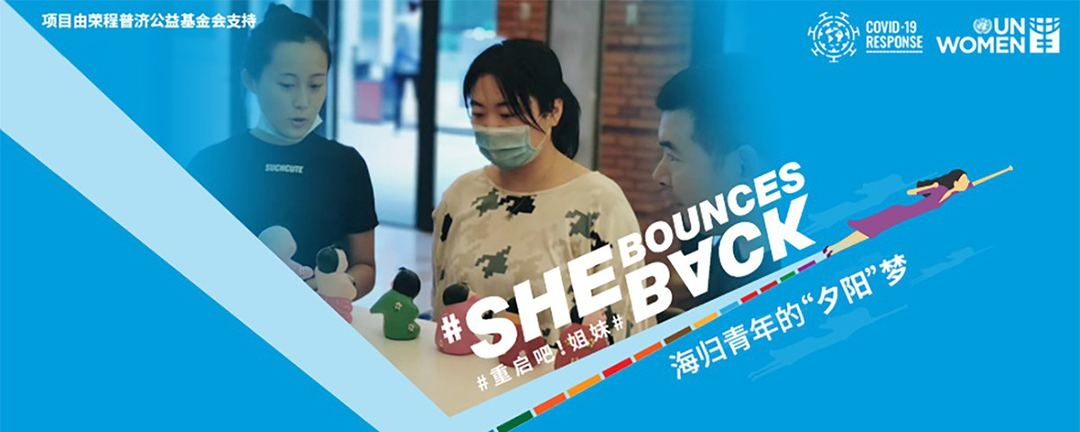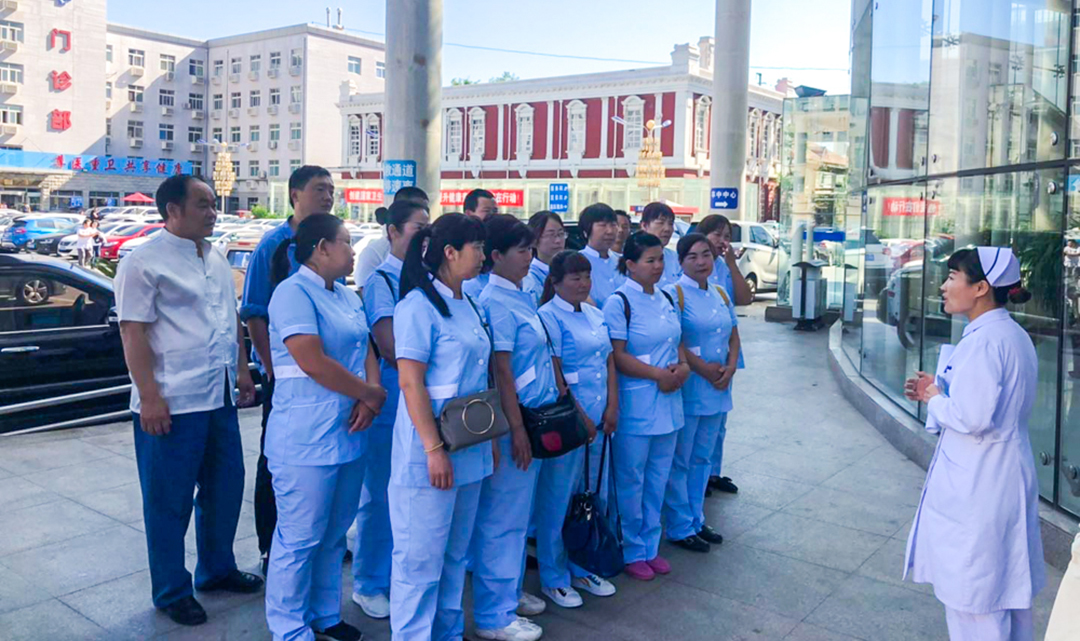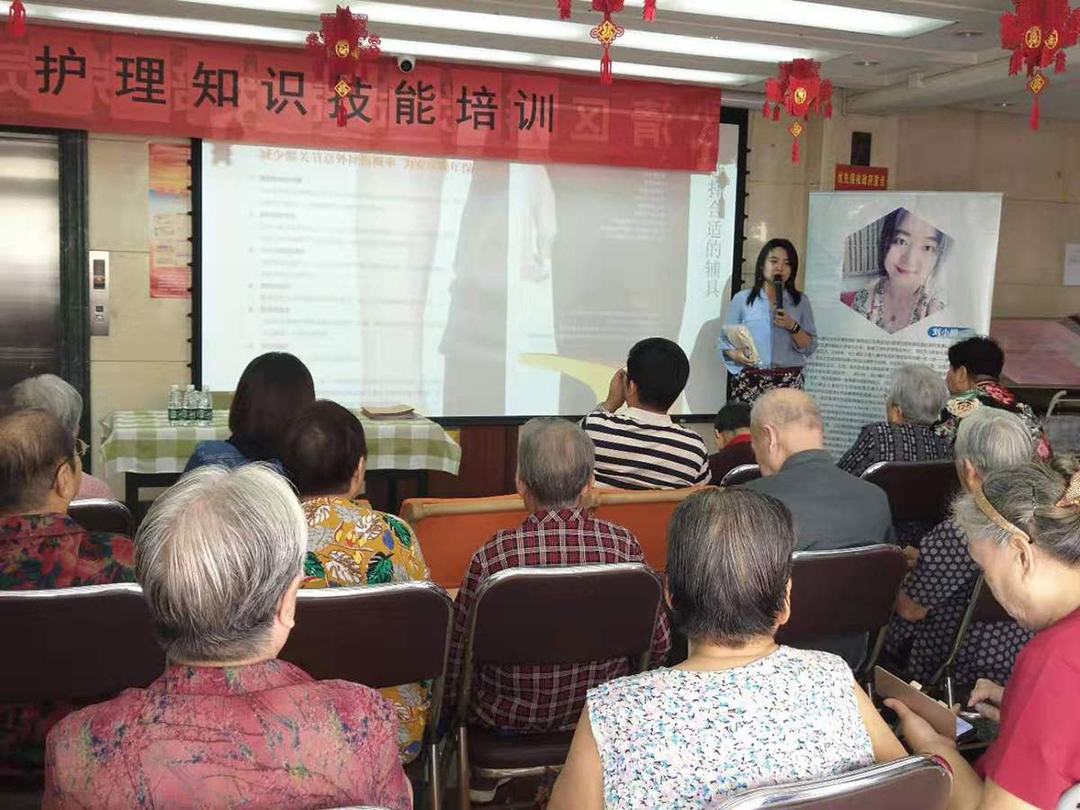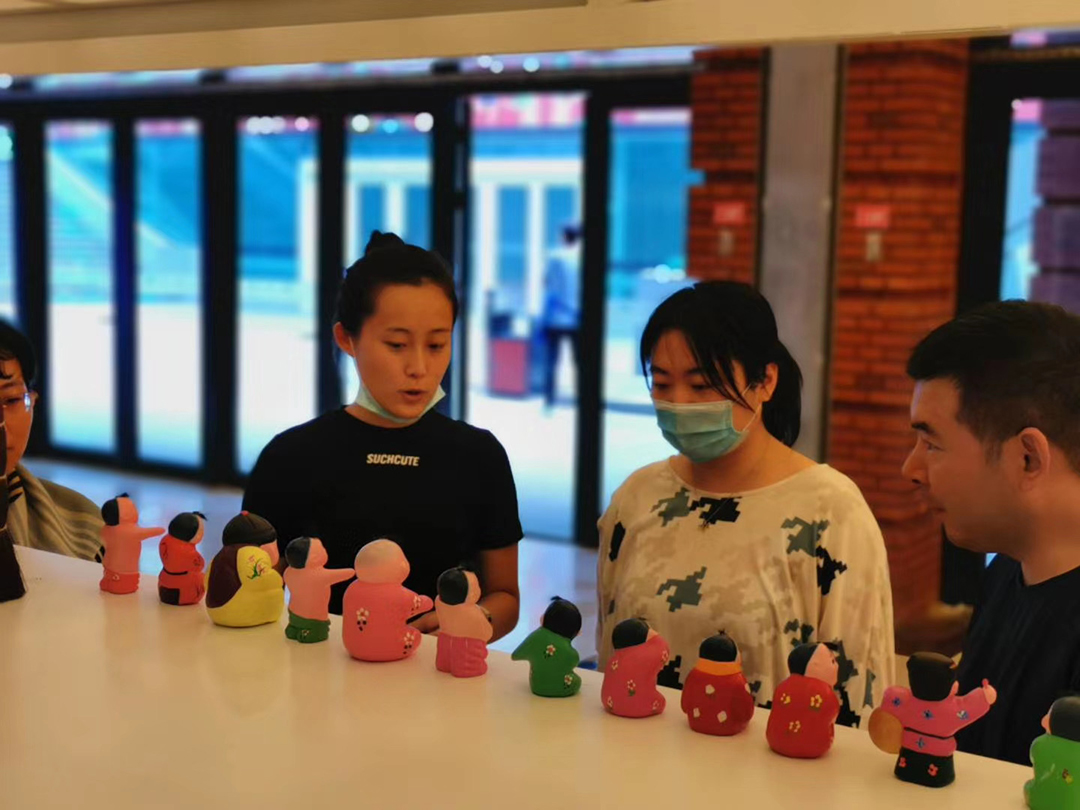
Liu Xiaodi: From care for the elderly to entrepreneurship for youths
Liu Xiaodi worked in the elderly care industry in Australia for more than 10 years before returning to China in 2018 to establish Tianyi Zhongyi Technology Co., Ltd. to service the elderly in her home city, Tianjin.Although her company had to briefly stop operating during the pandemic, Liu applied for subsidies, developed sideline businesses, and deepened her company’s online operations.

Liu Xiaodi in her office in Tianjin. Photo: Liu Xiaodi
“Our company mainly provides nursing care for elderly patients, focusing on recruitment, training and management of staff. The vast majority of employees in this industry are women; most are from villages and townships, have little to no basic professional training on medical care, and are underpaid. From the beginning, we trained our own staff, provided them with insurance, and persuaded them to take basic nursing care training. By the end of 2019, we were providing 24/7 care services to four hospital clients and three day care centres.

Tianyi Zhongyi Technology Co., Ltd. employees
attend an orientation. Photo: Liu Xiaodi
We were all set to obtain our second round of funding from investors and take off when the pandemic struck. Because of the restrictions on movement and personal contact, our staff weren’t able to enter hospitals to work or to take on-site care training. We had to stop all operations and suffered considerable financial loss, and yet we persisted.
In the past, companies like mine paid for staff training themselves, yet with our drop in income and the needs of most new care workers, this simply wasn’t affordable. So when we found that a municipal bureau was offering subsidies for care worker training, we quickly took advantage of this and used it to expand our business. Although the pandemic was ongoing, we established three vocational schools to lay a solid foundation for ourselves once it eased.
One key challenge in our industry is the large turnover of personnel, and our government has also recently encouraged workers to build livelihoods back in their hometowns. We turned this into an opportunity by localizing our online worker recruitment, management and training system so that it reached far beyond Tianjin. Every care worker is a seed, and those that return to their hometowns can now train, find work through our online system, and help more people around them to do the same.

Liu Xiaodi speaks with clients in a nursing home
in Wuqing District, Tianjin. Photo: Liu Xiaodi
While we continuously reviewed our main operation and performance, I also developed sideline businesses, such as an initiative to support entrepreneurship among college students.

Liu Xiaodi supports cultural and tourism
entrepreneurship among college students. Photo: Liu Xiaodi
Although women often face greater challenges in the business world, there are few supporting policies targeted at, for example, those who want to start their own business or to return to work after parenting. These women have unlimited potential, and I hope to see more future support for female entrepreneurs and companies that employ a lot of women, like ours.
For me, the women I work with -- both those we train and my peers in the business world – are like the sun. They always seem filled with light and hope, bringing heat and warmth to others. They have helped me find the confidence and strength to move forward, particularly during these difficult times. Sometimes it’s only when there are enough clouds in our lives that we see the beautiful sunset glow.”
